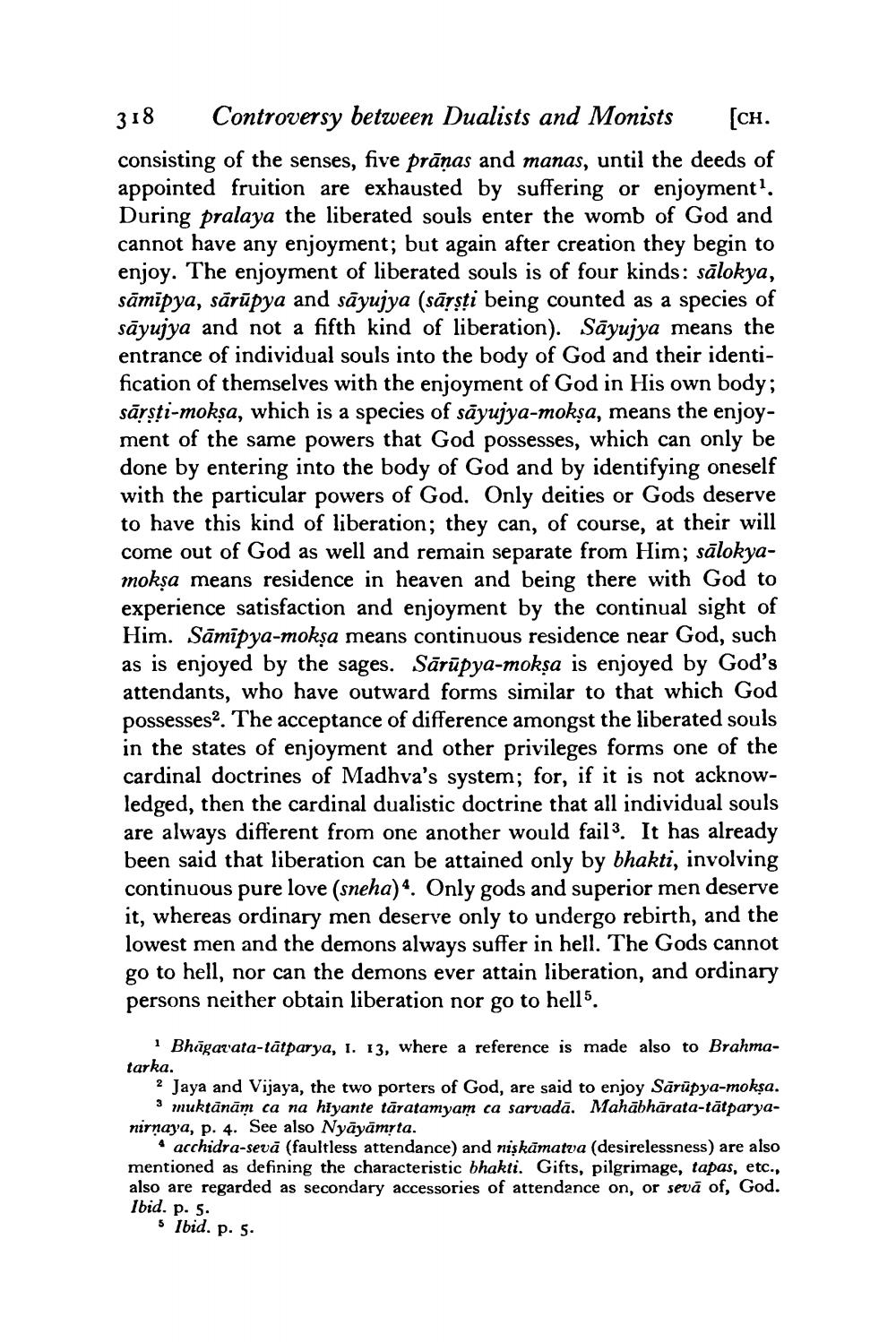________________
318
Controversy between Dualists and Monists
[CH.
consisting of the senses, five prāṇas and manas, until the deeds of appointed fruition are exhausted by suffering or enjoyment1. During pralaya the liberated souls enter the womb of God and cannot have any enjoyment; but again after creation they begin to enjoy. The enjoyment of liberated souls is of four kinds: sālokya, sāmīpya, sarūpya and sāyujya (sāṛṣṭi being counted as a species of sayujya and not a fifth kind of liberation). Sayujya means the entrance of individual souls into the body of God and their identification of themselves with the enjoyment of God in His own body; sāṛṣṭi-mokṣa, which is a species of sāyujya-mokṣa, means the enjoyment of the same powers that God possesses, which can only be done by entering into the body of God and by identifying oneself with the particular powers of God. Only deities or Gods deserve to have this kind of liberation; they can, of course, at their will come out of God as well and remain separate from Him; sālokyamokṣa means residence in heaven and being there with God to experience satisfaction and enjoyment by the continual sight of Him. Samipya-mokṣa means continuous residence near God, such as is enjoyed by the sages. Sārūpya-mokṣa is enjoyed by God's attendants, who have outward forms similar to that which God possesses2. The acceptance of difference amongst the liberated souls in the states of enjoyment and other privileges forms one of the cardinal doctrines of Madhva's system; for, if it is not acknowledged, then the cardinal dualistic doctrine that all individual souls are always different from one another would fail3. It has already been said that liberation can be attained only by bhakti, involving continuous pure love (sneha). Only gods and superior men deserve it, whereas ordinary men deserve only to undergo rebirth, and the lowest men and the demons always suffer in hell. The Gods cannot go to hell, nor can the demons ever attain liberation, and ordinary persons neither obtain liberation nor go to hell5.
1 Bhāgavata-tātparya, 1. 13, where a reference is made also to Brahmatarka.
2 Jaya and Vijaya, the two porters of God, are said to enjoy Sārūpya-mokṣa. 3 muktānāṁ ca na hiyante taratamyam ca sarvadā. Mahābhārata-tātparyanirnaya, p. 4. See also Nyāyāmṛta.
acchidra-seva (faultless attendance) and niṣkāmatva (desirelessness) are also mentioned as defining the characteristic bhakti. Gifts, pilgrimage, tapas, etc., also are regarded as secondary accessories of attendance on, or seva of, God. Ibid. p. 5.
5 Ibid. p. 5.




